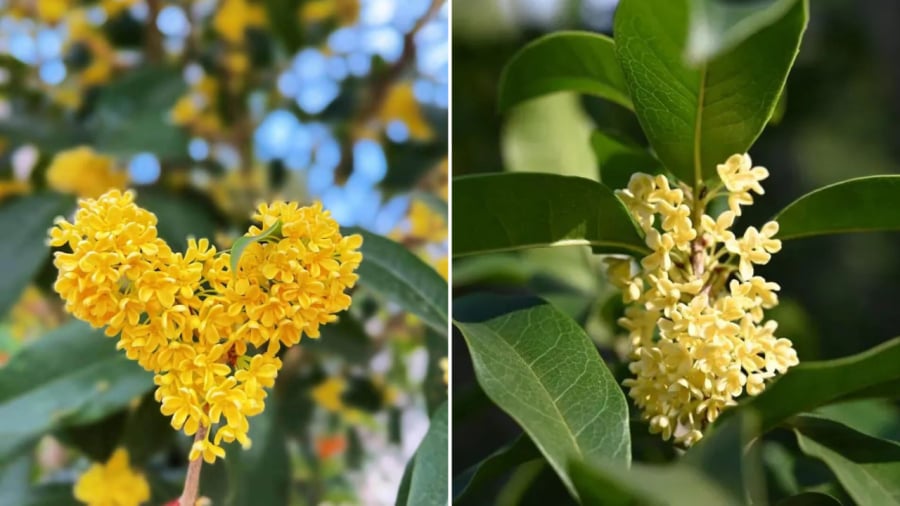For many, the cassia tree is more than just an ornamental plant for shade; it holds a myriad of other meanings. Its flowers boast elegant colors, infusing living spaces with vibrancy. The fragrant blossoms also emit a pleasant, relaxing aroma. Notably, cassia flowers are extensively used in culinary applications, from food to beverages.
Cassia Tree Characteristics
The cassia tree, also known as the cinnamon flower tree, is native to Asia and prevalent in the Himalayan mountain range and several other countries. In Vietnam, the cassia tree is a popular choice for home gardens.
Cassia trees are small, woody shrubs that can grow to heights ranging from 3 to 12 meters. They have numerous branches that spread outward, making them ideal for providing shade. Their leaves are thick, oval-shaped with serrated edges, and display prominent veins. The leaves are a deep shade of green.
One of the cassia tree’s distinctive features is its year-round flowering habit, with autumn being the season of its most vibrant bloom. Cassia flowers exude a captivating, distinctive fragrance. The tiny blossoms cluster together to form large inflorescences. Depending on the variety, the flowers can be white, pale yellow, or orange. Cassia trees rarely bear fruit, typically doing so only in the spring. Their small, green fruits contain seeds.
The fragrant cassia flowers are known for their relaxing properties and their ability to induce a good night’s sleep. Additionally, they are used in baking, tea infusions, and liquor production. The floral aroma enhances the flavor of various dishes and beverages.

What Does It Mean to Plant a Cassia Tree in Front of Your House?
Cassia trees possess air-purifying qualities, creating a fresh and wholesome living environment. From a feng shui perspective, these trees are believed to dispel negative energy and dispel gloom from living spaces.
Additionally, the cassia tree’s sturdy stature, lush foliage, and continuous flowering symbolize luck, prosperity, and abundance. Its robust growth and ever-present greenery also signify resilience and vitality.
Notably, in feng shui, the cassia tree is compatible with all five elements (Metal, Wood, Water, Fire, and Earth). It is particularly well-suited to those with a Metal element in their birth chart. Planting a cassia tree on one’s property is thought to invite peace and attract good fortune and prosperity.
The ideal location for a cassia tree is in front of the house, where it provides shade, beautifies the space, and holds positive feng shui implications. However, it’s important to consider that these trees can grow quite large, so adequate spacing is necessary to avoid obstructing pathways and natural light. Regular pruning is recommended to maintain a tidy appearance.
Cassia trees thrive in cool to warm temperatures, so homeowners should assess their local climate to ensure it aligns with the tree’s preferences.
This information is for reference only and is subject to individual interpretation.
































